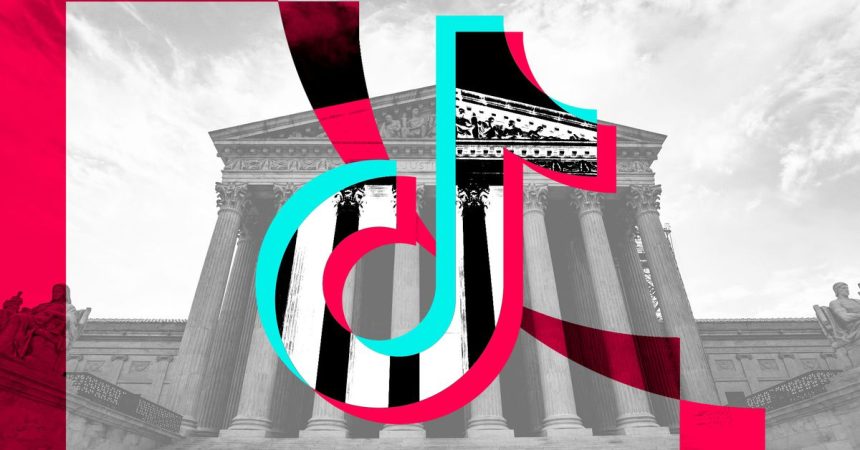The fate of TikTok in the United States hangs precariously in the balance, with the popular social media platform facing an impending ban unless a last-minute reprieve emerges. Following oral arguments before the Supreme Court, legal experts suggest that TikTok’s chances of prevailing in its legal challenge are slim, diminishing further after the justices’ questioning. The platform’s lifeline appears increasingly fragile, with the Court unlikely to grant the requested administrative stay, a temporary hold on the ban’s implementation pending a final decision. This leaves TikTok with few options: either its Chinese parent company, ByteDance, must agree to a sale of the app, or the Supreme Court must intervene and block the law before the January 19th deadline.
While the possibility of a sale remains on the table, and President-elect Donald Trump could explore creative avenues to avoid enforcing the ban once in office, the passage of time works against TikTok. The longer it takes for a sale to materialize or for the new administration’s policy to take shape, the greater the risk for TikTok and the companies that host it on their platforms. The uncertainty surrounding the enforcement of the ban presents significant challenges for app stores like Apple and Google, who could face hefty fines if they continue to offer TikTok in violation of the law. This legal limbo leaves these companies in a precarious position, forced to weigh the risks of non-compliance against the potential loss of a popular app and its user base.
The Supreme Court’s looming decision carries substantial weight, not only for TikTok but also for the broader landscape of online platforms and free speech. Legal experts offer differing perspectives on the potential ramifications of a ruling against TikTok. While some argue that the case’s unique circumstances, centering on foreign ownership, limit its precedent-setting power, others express concerns about the potential for broader implications. The law’s focus on corporate structure, specifically ownership by a Chinese parent company, raises questions about whether it could be used as a backdoor to regulate speech by targeting companies based on their ownership.
The arguments before the Supreme Court touched upon hypothetical scenarios where such a precedent could be exploited to punish companies for protected speech by demanding ownership changes. While these concerns did not appear to sway the court significantly, they highlight the potential slippery slope created by upholding the TikTok ban. The government’s justification for the ban, based on national security concerns related to data privacy and potential Chinese government influence, has been met with skepticism by some who argue that the law infringes on free speech rights without sufficient justification.
The core of the legal debate revolves around the balance between national security and free speech, a delicate equilibrium that the Supreme Court must carefully consider. The justices grappled with the complexities of this issue during oral arguments, exploring the potential for abuse and the implications for other companies. The government’s arguments focused on the unique risks posed by TikTok’s Chinese ownership, emphasizing the potential for data access and manipulation by the Chinese government. Conversely, TikTok and its supporters argued that the ban represents an overreach, targeting a specific company based on its ownership structure rather than addressing genuine national security threats.
The implications of the Supreme Court’s decision extend beyond TikTok, reaching into the broader realm of internet governance and the regulation of online platforms. The case highlights the increasing tension between governments seeking to exert control over online spaces and the fundamental principles of free speech. A ruling against TikTok could embolden other governments to pursue similar measures, potentially leading to a fragmented internet landscape where access to information and platforms varies depending on national regulations. The outcome of this legal battle will significantly impact the future of online platforms, shaping the relationship between governments, private companies, and individual users. The Supreme Court’s decision will set a precedent for how governments can regulate online platforms, influencing the balance between national security concerns and the protection of free speech in the digital age.



